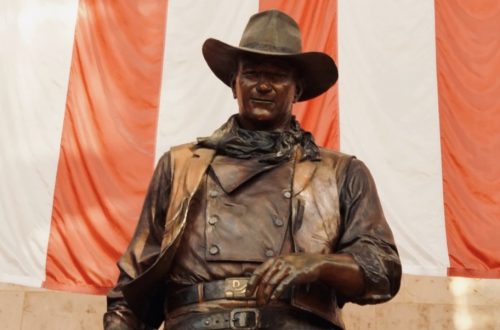Christianity Today has published an unusually scathing editorial by Andy Crouch. Crouch makes the case that “Evangelicals, of all people, should not be silent about Donald Trump’s blatant immorality.” He writes:
Since his nomination, Donald Trump has been able to count on “the evangelicals” (in his words) for a great deal of support.
This past week, the latest (though surely not last) revelations from Trump’s past have caused many evangelical leaders to reconsider. This is heartening, but it comes awfully late. What Trump is, everyone has known and has been able to see for decades, let alone the last few months. The revelations of the past week of his vile and crude boasting about sexual conquest—indeed, sexual assault—might have been shocking, but they should have surprised no one.
Indeed, there is hardly any public person in America today who has more exemplified the “earthly nature” (“flesh” in the King James and the literal Greek) that Paul urges the Colossians to shed: “sexual immorality, impurity, lust, evil desires, and greed, which is idolatry” (3:5). This is an incredibly apt summary of Trump’s life to date. Idolatry, greed, and sexual immorality are intertwined in individual lives and whole societies. Sexuality is designed to be properly ordered within marriage, a relationship marked by covenant faithfulness and profound self-giving and sacrifice. To indulge in sexual immorality is to make oneself and one’s desires an idol. That Trump has been, his whole adult life, an idolater of this sort, and a singularly unrepentant one, should have been clear to everyone.
And therefore it is completely consistent that Trump is an idolater in many other ways. He has given no evidence of humility or dependence on others, let alone on God his Maker and Judge. He wantonly celebrates strongmen and takes every opportunity to humiliate and demean the vulnerable. He shows no curiosity or capacity to learn. He is, in short, the very embodiment of what the Bible calls a fool.
I cannot stress enough how unusual it is for CT to publish an editorial like this, but I think they were right to do so. Furthermore, I would suggest that other evangelical leaders and writers might consider following suit. Why? Many evangelical Christians are content to stay out of the political fray. I in no way fault them for that. We all have different callings and interests, and that is fine. But we are faced with a set of very unusual circumstances in the candidacy of Donald Trump. Impressions often don’t match reality. Many people are assuming that evangelicals in toto are supporting Donald Trump, that evangelicals are willing to turn a blind eye to disqualifying character defects, and that they are willing to endorse reprehensible character so long as the candidate is Republican and not Democrat. In short, it appears that evangelicals have no principle only partisan interest.
I know that many evangelicals would object to that characterization saying, “But that is an inaccurate view of things. Evangelicals are divided over Trump. And many of the ones supporting him are only doing so grudgingly because the alternative is also morally reprehensible.” I get that. But that is not the perception of outsiders. Outsiders are viewing us as a piece. One measure of that is revealed in an anecdote I just heard yesterday. A friend of mine was talking to a very well-known religion writer who assumed that evangelicals like Russell Moore and Albert Mohler were endorsing Trump. I think it is astonishing that a journalist could be so misinformed about the evangelical landscape, but there it was.
Do you think that the media and the general public are going to be any less confused about the evangelical landscape in the wake of Donald Trump? I don’t. Even though some of us have been making the case for his unfitness since the primaries, that fact is lost on many. I guarantee you that after this election is over, the media narrative will place a large part of the blame on “evangelicals” for Donald Trump’s malignant candidacy. And that narrative will treat “evangelicals” in an undifferentiated way.
What does that mean? It means that all of us will bear the dishonor of his candidacy, even those evangelicals who never endorsed him and even some of us who made the case against him. I’m simply saying that we should not expect a fair and nuanced portrayal of “evangelical” attitudes in the aftermath of election 2016. There will be blame and shame going around, and “evangelicals” will bear much of it—some of it deservedly, and some of it undeservedly.
That is why CT‘s editorial is so necessary. We are in an extraordinary moment that calls for extraordinary moral clarity. In fact, I think that more evangelical leaders and writers who are usually silent on such matters would do well to follow CT‘s lead here. It is important to speak with moral clarity now for the sake of evangelical witness later. Max Lucado and Beth Moore, for example, have both weighed-in, and I think it would be tremendously helpful if more would join them. This can be done without endorsing any particular candidate—just as Crouch has done. But I think now is the time to speak up. What we say now will shape the public impressions of evangelical Christianity later. And conscientious evangelicals need to be heard.
UPDATE: Since posting this earlier today, evangelicals have begun weighing-in. I’m going to try to keep a running update of statements below.
Unfit for power: It’s time for @realDonaldTrump to step aside and make room for another candidate https://t.co/PgqnvWxhV3 @MarvinOlasky pic.twitter.com/0KVvEIPNVk
— WORLD (@WORLD_mag) October 11, 2016
Of course, Trump should step down as Olasky and Grudem say. So should Hillary. That is what "unqualified" means. It's never been a question.
— John Piper (@JohnPiper) October 12, 2016
As a Christian — it's a matter of accountability to God — I cannot go along with either the Predator or the Hypocrite. I protest both.
— Ray Ortlund (@rayortlund) October 11, 2016



